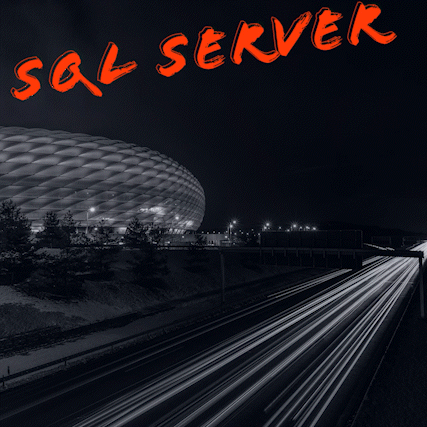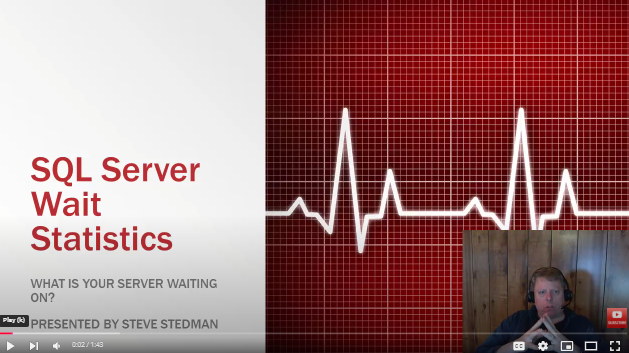Wait statistics, in the context of SQL Server, refer to the amount of time that a query spends waiting to access data in the database. When a client application requests data from the database, the request is placed in a queue and the client application must wait for its turn to access the data. The time that the query spends waiting is called a "wait" and is tracked by SQL Server. This information can be used to identify potential performance bottlenecks and optimize the performance of the database. Wait statistics are commonly used by database administrators to diagnose and troubleshoot performance issues in SQL Server.
SQL Server Always On Availability Groups are powerful tools for high availability and disaster recovery, but they come with specific wait types that reflect what’s happening under the hood. One such wait type is HADR_DATABASE_WAIT_FOR_TRANSITION_TO_VERSIONING. Understanding this wait type can help you troubleshoot and optimize your Always On setup.
What is HADR_DATABASE_WAIT_FOR_TRANSITION_TO_VERSIONING?
The HADR_DATABASE_WAIT_FOR_TRANSITION_TO_VERSIONING wait type occurs when SQL Server is waiting for a database in an Always On Availability Group to transition to versioning mode. This typically happens during database recovery or when a secondary replica is synchronizing with the primary replica.
In simpler terms, this wait type indicates that SQL Server is preparing the database for change tracking and consistency as part of the Always On synchronization process. While brief waits are normal during these transitions, extended waits could indicate underlying issues.
Why Does HADR_DATABASE_WAIT_FOR_TRANSITION_TO_VERSIONING Happen?
Several factors can lead to this wait type, including:
- Delays in database recovery or synchronization processes.
- Large transaction logs needing to be applied on the secondary replica.
- Resource constraints such as insufficient CPU, memory, or disk I/O on the primary or secondary replicas.
- Network latency or interruptions between replicas.
- Heavy workloads on the Always On Availability Group causing contention.
These waits can slow down failovers, synchronization, or recovery processes if not addressed.
How to Monitor HADR_DATABASE_WAIT_FOR_TRANSITION_TO_VERSIONING Waits
To track and analyze HADR_DATABASE_WAIT_FOR_TRANSITION_TO_VERSIONING waits, monitoring tools like the Database Health Monitor are invaluable. Its Historic Waits Monitoring feature allows you to view when and why these waits occur, helping you identify patterns and correlate them with system activity.
With Database Health Monitor, you can determine if these waits are tied to specific events, such as failovers or high transaction volumes, and take corrective action to minimize delays.
What Can You Do About HADR_DATABASE_WAIT_FOR_TRANSITION_TO_VERSIONING Waits?
If you encounter frequent or prolonged HADR_DATABASE_WAIT_FOR_TRANSITION_TO_VERSIONING waits, consider taking the following steps:
- Optimize queries and indexes to reduce transaction log size and synchronization overhead.
- Increase resources on the primary and secondary replicas, such as CPU, memory, or disk I/O capacity.
- Improve network bandwidth and reliability between replicas to reduce latency.
- Ensure your Always On Availability Group configuration aligns with best practices for your workload.
- Monitor and address any hardware or software issues causing delays in database recovery or synchronization.
These measures can help reduce the occurrence of this wait type and improve the overall performance of your Always On Availability Groups.
How Stedman Solutions Can Help
At Stedman Solutions, we specialize in SQL Server performance tuning and troubleshooting, including resolving wait types like HADR_DATABASE_WAIT_FOR_TRANSITION_TO_VERSIONING. Our managed services offer proactive monitoring and expert support to optimize your Always On Availability Groups. Additionally, our Database Health Monitor provides comprehensive tools to track and analyze SQL Server waits, ensuring your database environment is efficient and reliable.
If you’re facing performance challenges with your Always On setup or need expert guidance to optimize your SQL Server environment, contact us today. Let us help you achieve a high-performing and resilient database system!

Find out more about our SQL Server Managed Services
Applies to
Related Waits
HADR_AG_MUTEXHADR_AR_CRITICAL_SECTION_ENTRY
HADR_AR_MANAGER_MUTEX
HADR_AR_UNLOAD_COMPLETED
HADR_ARCONTROLLER_NOTIFICATIONS_SUBSCRIBER_LIST
HADR_BACKUP_BULK_LOCK
HADR_BACKUP_QUEUE
HADR_CLUSAPI_CALL
HADR_COMPRESSED_CACHE_SYNC
HADR_CONNECTIVITY_INFO
HADR_DATABASE_FLOW_CONTROL
HADR_DATABASE_VERSIONING_STATE
HADR_DATABASE_WAIT_FOR_RESTART
HADR_DB_COMMAND
HADR_DB_OP_COMPLETION_SYNC
HADR_DB_OP_START_SYNC
HADR_DBR_SUBSCRIBER
HADR_DBR_SUBSCRIBER_FILTER_LIST
HADR_DBSEEDING
HADR_DBSEEDING_LIST
HADR_DBSTATECHANGE_SYNC
HADR_FABRIC_CALLBACK
HADR_FILESTREAM_BLOCK_FLUSH
HADR_FILESTREAM_FILE_CLOSE
HADR_FILESTREAM_FILE_REQUEST
HADR_FILESTREAM_IOMGR
HADR_FILESTREAM_MANAGER
HADR_GROUP_COMMIT
HADR_LOGCAPTURE_SYNC
HADR_LOGCAPTURE_WAIT
HADR_LOGPROGRESS_SYNC
HADR_NOTIFICATION_DEQUEUE
HADR_NOTIFICATION_WORKER_EXCLUSIVE_ACCESS
HADR_NOTIFICATION_WORKER_STARTUP_SYNC
HADR_NOTIFICATION_WORKER_TERMINATION_SYNC
HADR_PARTNER_SYNC
HADR_READ_ALL_NETWORKS
HADR_RECOVERY_WAIT_FOR_CONNECTION
HADR_RECOVERY_WAIT_FOR_UNDO
HADR_REPLICAINFO_SYNC
HADR_SYNC_COMMIT
HADR_SYNCHRONIZING_THROTTLE
HADR_TDS_LISTENER_SYNC
HADR_TDS_LISTENER_SYNC_PROCESSING
HADR_TIMER_TASK
HADR_TRANSPORT_DBRLIST
HADR_TRANSPORT_FLOW_CONTROL
HADR_TRANSPORT_SESSION
HADR_WORK_POOL
HADR_WORK_QUEUE
HADR_XRF_STACK_ACCESS
See Also
All Wait Types


